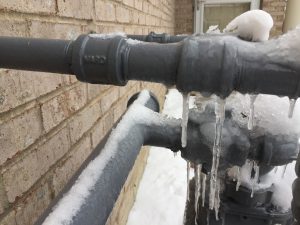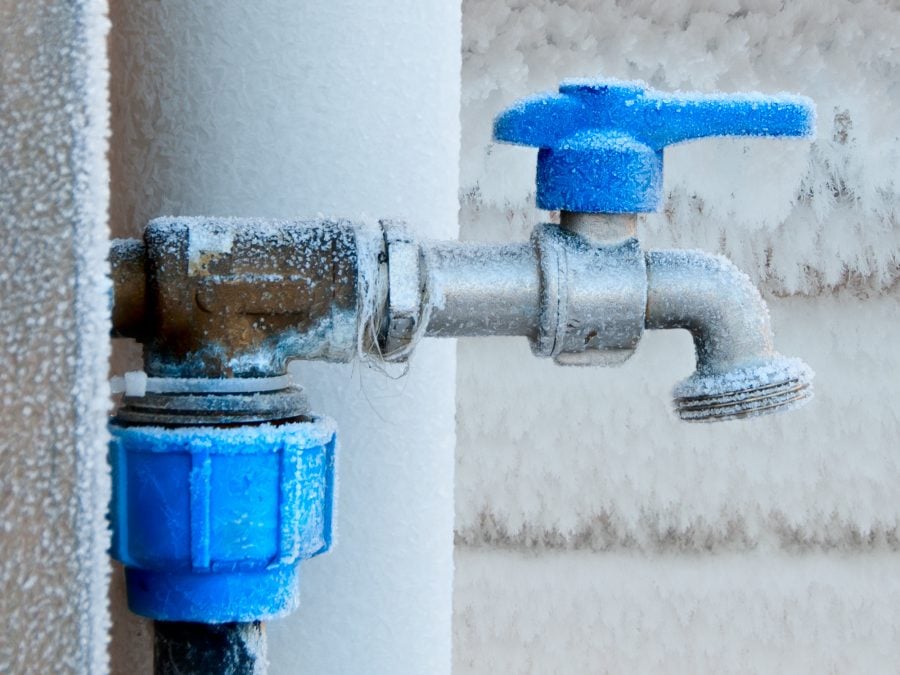In this article below you can discover lots of quality insights when it comes to How To Avoid Freezing Pipes.

Winter can ruin your pipes, particularly by freezing pipelines. Below's how to prevent it from occurring and what to do if it does.
Introduction
As temperatures drop, the threat of icy pipelines boosts, potentially resulting in pricey repair services and water damages. Recognizing exactly how to stop frozen pipes is essential for home owners in chilly climates.
Avoidance Tips
Insulating at risk pipelines
Cover pipes in insulation sleeves or utilize heat tape to secure them from freezing temperatures. Focus on pipes in unheated or outside locations of the home.
Heating strategies
Maintain indoor areas effectively heated up, especially locations with pipes. Open closet doors to enable warm air to flow around pipes under sinks.
Just how to determine icy pipes
Look for reduced water flow from faucets, uncommon odors or noises from pipelines, and noticeable frost on subjected pipelines.
Long-Term Solutions
Structural changes
Consider rerouting pipelines far from exterior wall surfaces or unheated areas. Add extra insulation to attic rooms, basements, and crawl spaces.
Updating insulation
Purchase top quality insulation for pipes, attic rooms, and walls. Correct insulation helps preserve constant temperature levels and lowers the threat of icy pipelines.
Shielding Exterior Pipes
Yard hose pipes and outside faucets
Disconnect and drain pipes yard hose pipes before winter. Mount frost-proof faucets or cover outside taps with shielded caps.
Comprehending Frozen Pipelines
What causes pipelines to freeze?
Pipelines freeze when revealed to temperatures listed below 32 ° F (0 ° C) for prolonged durations. As water inside the pipes ices up, it expands, taxing the pipeline walls and possibly creating them to rupture.
Threats and problems
Frozen pipes can bring about water interruptions, residential property damages, and expensive repairs. Burst pipes can flooding homes and cause considerable architectural damages.
Signs of Frozen Water Lines
Recognizing icy pipes early can stop them from rupturing.
What to Do If Your Pipes Freeze
Immediate actions to take
If you believe frozen pipelines, maintain faucets open up to ease pressure as the ice melts. Utilize a hairdryer or towels soaked in hot water to thaw pipes slowly.
Conclusion
Avoiding frozen pipelines calls for aggressive actions and fast actions. By comprehending the causes, indicators, and safety nets, house owners can safeguard their pipes throughout cold weather.
Helpful Tips to Prevent Frozen Pipes this Winter
UNDERSTANDING THE BASICS: WHY PIPES FREEZE AND WHY IT’S A PROBLEM
Water freezing inside pipes is common during the winter months, but understanding why pipes freeze, and the potential problems it can cause is crucial in preventing such incidents. This section will delve into the basics of why pipes freeze and the associated problems that may arise.
THE SCIENCE BEHIND FROZEN PIPES
When water reaches freezing temperatures, it undergoes a physical transformation and solidifies into ice. This expansion of water as it freezes is the primary reason pipes can burst. As the water inside the pipe freezes, it expands, creating immense pressure on the walls. If the pressure becomes too great, the pipe can crack or rupture, leading to leaks and water damage.
FACTORS THAT CONTRIBUTE TO PIPE FREEZING
Low Temperatures: Extremely cold weather, especially below freezing, increases the risk of pipes freezing. Uninsulated or Poorly Insulated Pipes: Pipes located in unheated areas, such as basements, crawl spaces, or attics, are more prone to freezing. Insufficient insulation or lack of insulation altogether exacerbates the problem. Exterior Wall Exposure: Pipes running along exterior walls are susceptible to freezing as they encounter colder temperatures outside. Lack of Heating or Temperature Regulation: Inadequate heating or inconsistent temperature control in your home can contribute to frozen pipes. PROBLEMS CAUSED BY FROZEN PIPES
- Pipe Bursting: As mentioned earlier, the expansion of water as it freezes can cause pipes to burst, resulting in significant water damage.
- Water Damage: When pipes burst, it can lead to flooding and water damage to your property, including walls, ceilings, flooring, and personal belongings.
- Structural Damage: Prolonged exposure to water from burst pipes can compromise the structural integrity of your home, leading to costly repairs.
- Mold and Mildew Growth: Excess moisture from water damage can create a favorable environment for mold and mildew growth, posing health risks to occupants.
- Disrupted Water Supply: Frozen pipes can also result in a complete or partial loss of water supply until the issue is resolved.
WHY CERTAIN PIPES ARE MORE PRONE TO FREEZING
- Location: Pipes located in unheated or poorly insulated areas, such as basements, crawl spaces, attics, or exterior walls, are at higher risk of freezing.
- Exterior Pipes: Outdoor pipes, such as those used for irrigation or exposed plumbing, are particularly vulnerable to freezing as they are directly exposed to the elements.
- Supply Lines: Pipes that carry water from the main water supply into your home, including the main water line, are critical to protect as freezing in these lines can affect your entire plumbing system.
- Underground Pipes: Pipes buried underground, such as those connected to sprinkler systems or outdoor faucets, can be susceptible to freezing if not properly insulated.
https://busybusy.com/blog/helpful-tips-to-prevent-frozen-pipes-this-winter/

As a keen person who reads on How to prepare your home plumbing for winter weather, I imagined sharing that piece of content was really useful. Be sure to take a moment to share this blog entry if you enjoyed reading it. I praise you for being here. Please pay a visit to our blog back soon.
This Site